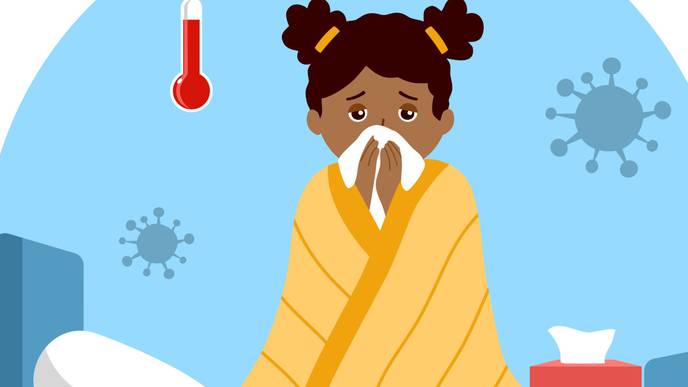Inhalable ‘SHIELD’ Protects Lungs Against COVID-19, Flu Viruses

02/10/2023
Newswise — Researchers have developed an inhalable powder that could protect lungs and airways from viral invasion by reinforcing the body’s own mucosal layer. The powder, called Spherical Hydrogel Inhalation for Enhanced Lung Defense, or SHIELD, reduced infection in both mouse and non-human primate models over a 24-hour period, and can be taken repeatedly without affecting normal lung function.
“The idea behind this work is simple – viruses have to penetrate the mucus in order to reach and infect the cells, so we’ve created an inhalable bioadhesive that combines with your own mucus to prevent viruses from getting to your lung cells,” says Ke Cheng, corresponding author of the paper describing the work. “Mucus is the body’s natural hydrogel barrier; we are just enhancing that barrier.”
Cheng is the Randall B. Terry, Jr. Distinguished Professor in Regenerative Medicine at North Carolina State University’s College of Veterinary Medicine and a professor in the NC State/UNC-Chapel Hill Joint Department of Biomedical Engineering.
The inhalable powder microparticles are composed of gelatin and poly(acrylic acid) grafted with a non-toxic ester. When introduced to a moist environment – such as the respiratory tract and lungs – the microparticles swell and adhere to the mucosal layer, increasing the “stickiness” of the mucus.
The effects are most potent during the first eight hours after inhalation. SHIELD biodegrades over a 48-hour period, and is completely cleared from the body.
In a mouse model, SHIELD blocked SARS-CoV-2 pseudovirus particles with 75% efficiency four hours after inhalation, which fell to 18% after 24 hours. The researchers found similar results when testing against pneumonia and H1N1 viruses.
In a non-human primate model of both the original and Delta SARS-CoV-2 variants, SHIELD-treated subjects had reduced viral loads – from 50 to 300-fold less than control subjects – and none of the symptoms commonly associated with infection in primates, such as lung inflammation or fibrosis. Since primates do not exhibit the same symptoms of infection as humans, viral load is the standard marker used to determine exposure.
The researchers also looked at potential toxicity both in vitro and in vivo: 95% of cell cultures exposed to a high concentration (10 mg ml-1) of SHIELD remained healthy, and mice who were given daily doses for two weeks retained normal lung and respiratory function.
“SHIELD is easier and safer to use than other physical barriers or anti-virus chemicals,” Cheng says. “It works like an ‘invisible mask’ for people in situations where masking is difficult, for example during heavy exercise, while eating or drinking, or in close social interactions. People can also use SHIELD on top of physical masking to have better protection.
“But the beauty of SHIELD is that it isn’t necessarily limited to protecting against COVID-19 or flu. We’re looking at whether it could also be used to protect against things like allergens or even air pollution – anything that could potentially harm the lungs.”
The study appears inNature Materials and is supported by the National Institutes of Health, the American Heart Association, and special funding from the NC State Provost’s Office. The researchers have filed a patent and are working on FDA approval for human use.
-peake-
Note to editors: An abstract follows.
“An inhaled bioadhesive hydrogel to shield non-human primates from SARS-CoV-2 Infection”
DOI: 10.1038/s41563-023-01475-7
Authors: Xuan Mei, Junlang Li, Zhenzhen Wang, Dashuai Zhu, Ke Huang, Shiqi Hu, Kristen D. Popowski, Ke Cheng, North Carolina State University
Published: Feb, 9, 2023 in Nature Materials
Abstract:
The surge of fast-spreading SARS-CoV-2 mutated variants highlights the need for fast, broad-spectrum strategies to counteract viral infections. In this work, we report a physical barrier against SARS-CoV-2 infection based on an inhalable bioadhesive hydrogel, named spherical hydrogel inhalation for enhanced lung defence (SHIELD). Conveniently delivered via a dry powder inhaler, SHIELD particles form a dense hydrogel network that coats the airway, enhancing the diffusional barrier properties and restricting virus penetration. SHIELD’s protective effect is first demonstrated in mice against two SARS-CoV-2 pseudo-viruses with different mutated spike proteins. Strikingly, in African green monkeys, a single SHIELD inhalation provides protection for up to 8 hours, efficiently reducing infection by the SARS-CoV-2 WA1 and B.1.617.2 (Delta) variants. Notably, SHIELD is made with food-grade materials and does not affect normal respiratory functions. This approach could offer additional protection to the population against SARS-CoV-2 and other respiratory pathogens.

Facebook Comments